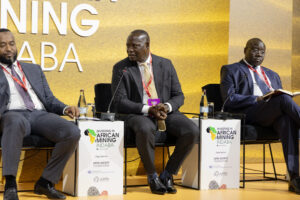
The Deputy Minister of Energy, Mr William Owireku Aidoo, has made a strong case for Ghana’s energy sector, describing it as a favourable destination due to its attractive energy sector environment.
According to Ghana’s energy sector is ranked as one of the most attractive on the continent.
Mr Aidoo, who doubles as the Member of Parliament for the Afigya Sekyere South Constituency in the Ashanti Region, disclosed this in statement read on behalf of the sector Minister, Dr. Matthew Opoku Prempeh, on Wednesday at the ongoing 14th EIF World Energy Congress and Exhibition at Antalya, Turkey.
The congress is under the theme: “Energy Conversion and Renewable Energy”.
Speaking on the topic: ‘Ghana’s Energy Situation – Our Policies, Opportunities and Challenges’, Mr Aidoo stated that the Ghanaian energy sector was in a period of transition and aimed at creating a balance between the ecosystem and economic development.
He said the country’s medium to long term goal was to increase the contribution of renewable energy from the 120MWe installed capacity representing 2.4% to more than 1000MW in the national generation mix moving it to about 10% renewable energy in the generation mix by 2030.
He further stated that Ghana intended to accelerate the construction of the first utility-scale nuclear power plant within the same period to generate at least 1000MW of power.
Coupled with other green energy technologies such as hydropower and large energy battery storage systems, mass electric-mobility for the transportation of goods and services, he declared,
“I am confident to announce that Ghana is on the path to becoming the first country in the West African subregion to reach the UN net-zero emission target. Thus, significantly large opportunities and markets are being created in the low-carbon sectors and we welcome multinational corporations here present to consider Ghana and the ECOWAS subregion as preferred investment destination,” he emphasised.
The Deputy Minister also referred to other initiatives such as the creation of the necessary legal and fiscal regimes to attract private sector participation in the sector with Independent Power Producers (IPPs) such as KarPowership Holding and AKSA Ghana currently generating approximately 460MW and 350MW respectively of clean thermal electricity using local natural gas supply in Ghana.
“I can say without equivocation that the energy sector policies of Ghana are among the most attractive in Africa,” the Deputy Minister stated.
He also mentioned the amendment of the National Renewable Energy Act in 2020 (Act 1045) to provide the basis for renewable energy development and private sector participation in the renewable energy subsector as well as the development of the Renewable Energy Master Plan (REMP) to address long-term planning challenges and provide an investment-focused framework for the promotion and development of the country’s renewable energy resources for sustainable economic growth. The REMP, he noted, created a US$ 5.6 billion market in renewable energy generation, manufacturing and export over the next ten years and an estimated 220,000 jobs for our people.
“We have also launched a number of flagship investment programs including the scaling-up renewable energy program (SREP) with the aim of increasing the contribution of renewable energy in the generation mix and the achievement of our last mile electrification strategies. Under the SREP, Government targets the deployment of 35,000 units of solar home systems for off-grid communities, 55 units of mini-grids and 15000 units of net-metered solar PV installation. We are rolling out the full implementation of this program in the first quarter of 2022 with initial financing contributions from the Government of Ghana, African Development Bank, Swiss Government and the Climate Investment Fund,” he stressed.
Mr Aidoo stated that in response to these enabling environments, the Ghana renewable energy market had begun to attract major bilateral and multilateral investments from countries such Germany, Japan, Turkey, China, the United States of America, the Middle East, United Kingdom and bolster confidence for continuous growth.
In respect of various challenges in the sector, he revealed that government was committing resources to critical areas of the energy sector, reducing the wastage through the implementation of policies such as the Cash Waterfall Mechanism (CWM), the Energy Sector Recovery Program (ESRP) as a major intervention for rebuilding the foundation for a financially sustainable and efficient energy market.
Ghana’s delegation to the event included senior officials from the Ministry of Energy as well as other key figures in the renewable energy sector.
The congress is being held from 13th to 15th October 2021.









I don’t think the title of your article matches the content lol. Just kidding, mainly because I had some doubts after reading the article.